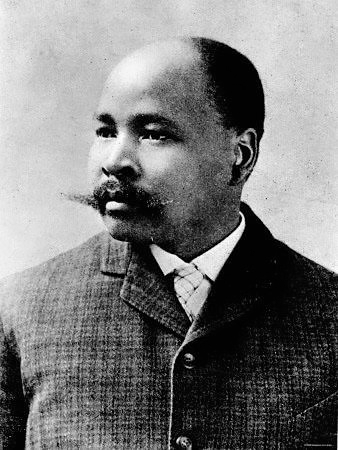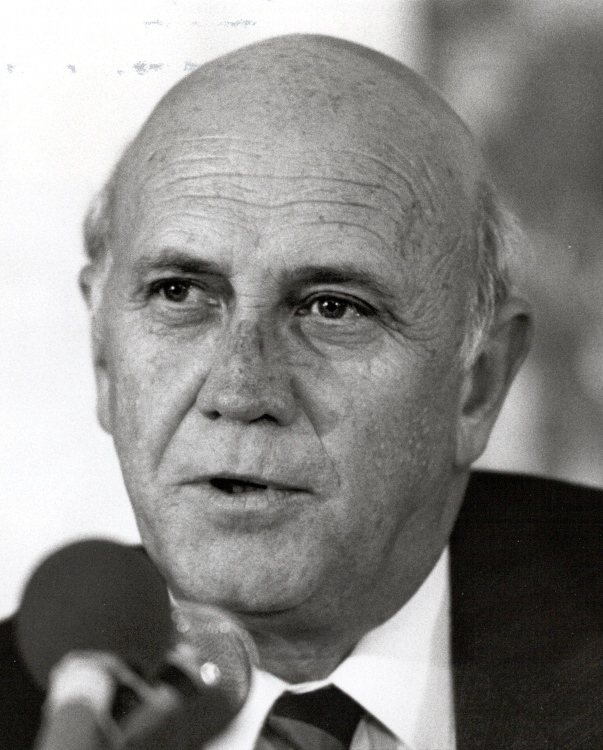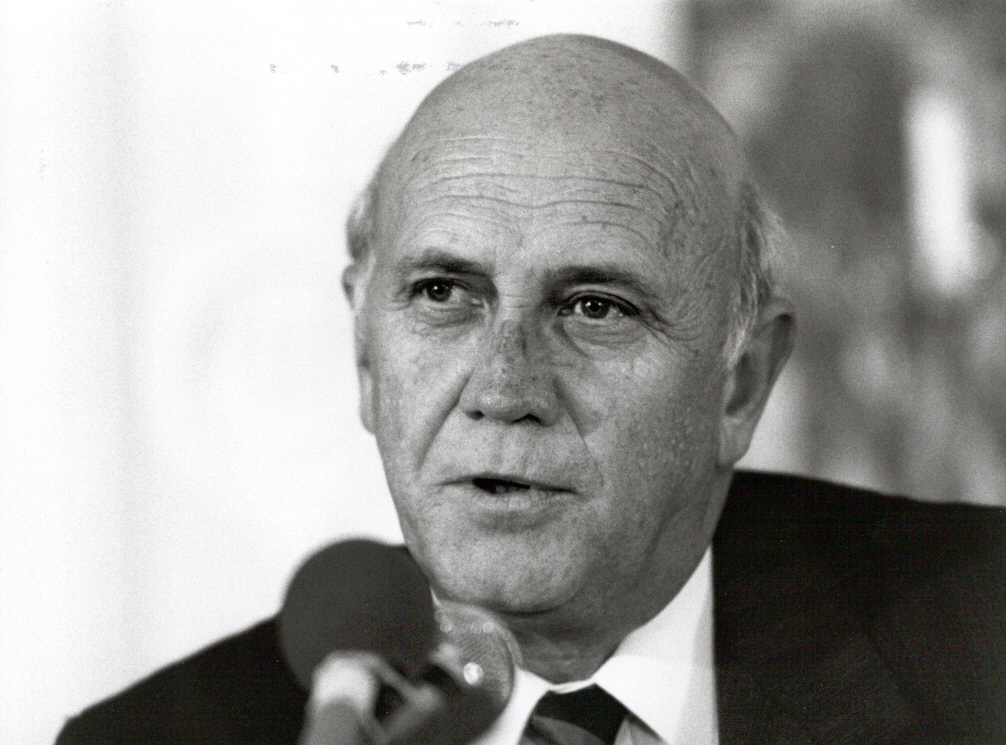|
Ramaphosa
Matamela Cyril Ramaphosa (born 17 November 1952) is a South African businessman and politician who is currently serving as the fifth democratically elected president of South Africa. Formerly an anti-apartheid activist, trade union leader, and businessman, Ramaphosa is also the president of the African National Congress (ANC). Ramaphosa rose to national prominence as secretary general of South Africa's biggest and most powerful trade union, the National Union of Mineworkers. In 1991, he was elected ANC secretary general under ANC president Nelson Mandela and became the ANC's chief negotiator during the negotiations that ended apartheid. He was elected chairperson of the Constitutional Assembly after the country's first fully democratic elections in 1994 and some observers believed that he was Mandela's preferred successor. However, Ramaphosa resigned from politics in 1996 and became well known as a businessman, including as an owner of McDonald's South Africa, chair of t ... [...More Info...] [...Related Items...] OR: [Wikipedia] [Google] [Baidu] |
Kgalema Motlanthe
Kgalema Petrus Motlanthe (; born 19 July 1949) is a South African politician who was South Africa's third president of South Africa, president between 25 September 2008 and 9 May 2009, following Thabo Mbeki's resignation. Thereafter, he was deputy president under Jacob Zuma until 26 May 2014. Raised in Soweto in the former Transvaal (province), Transvaal after his family was Apartheid, forcibly removed from Alexandra, Gauteng, Alexandra, Motlanthe was recruited into UMkhonto we Sizwe, the armed wing of the African National Congress (ANC), after he finished high school. Between 1977 and 1987, he was imprisoned on Robben Island under the Terrorism Act, 1967, Terrorism Act for his Internal resistance to apartheid, anti-apartheid activism. Upon his release, he joined the influential National Union of Mineworkers (South Africa), National Union of Mineworkers, where he was general secretary between 1992 and early 1998. After the end of apartheid, he ascended from the trade union moveme ... [...More Info...] [...Related Items...] OR: [Wikipedia] [Google] [Baidu] |
Jacob Zuma
Jacob Gedleyihlekisa Zuma (; born 12 April 1942) is a South African politician who served as the fourth president of South Africa from 2009 to 2018. He is also referred to by his initials JZ and clan name Msholozi, and was a former anti-apartheid activist, member of Umkhonto we Sizwe, and president of the African National Congress (ANC) between 2007 and 2017. Zuma was born in the rural region of Nkandla, which is now part of the KwaZulu-Natal province and the centre of Zuma's support base. He joined the ANC at the age of 17 in 1959, and spent ten years in Robben Island Prison as a political prisoner. He went into exile in 1975, and was ultimately appointed head of the ANC's intelligence department. After the ANC was unbanned in 1990, he quickly rose through the party's national leadership and became deputy secretary general in 1991, national chairperson in 1994, and deputy president in 1997. He was the deputy president of South Africa from 1999 to 2005 under President Thabo ... [...More Info...] [...Related Items...] OR: [Wikipedia] [Google] [Baidu] |
David Mabuza
David Dabede "DD" Mabuza (born 25 August 1960) is a South African politician who has been Deputy President of South Africa since February 2018. He was the Deputy President of the African National Congress (ANC) from December 2017 to December 2022 and was previously the Premier of Mpumalanga from 2009 to 2018, throughout the presidency of his former political ally Jacob Zuma. A native of rural Mpumalanga and a teacher by training, Mabuze's initial engagement in politics was through the Black Consciousness movement, while he was a student, and then through teachers' unions; he was chairperson of the South African Democratic Teachers Union, an affiliate of the influential Congress of South African Trade Unions, from 1988 to 1991. After the end of apartheid in 1994, he joined the Mpumalanga provincial legislature as an ANC representative and took up a series of ministerial posts in the Mpumalanga Executive Council. He was elected to the ANC National Executive Committee for the fir ... [...More Info...] [...Related Items...] OR: [Wikipedia] [Google] [Baidu] |
President Of South Africa
The president of South Africa is the head of state and head of government of the Republic of South Africa. The president heads the executive branch of the Government of South Africa and is the commander-in-chief of the South African National Defence Force. Between 1961 and 1994, the office of head of state was the State President of South Africa, state presidency. The president is elected by the National Assembly of South Africa, National Assembly, the lower house of Parliament of South Africa, Parliament, and is usually the leader of the largest party, which has been the African National Congress since the first multiracial election was held on 27 April 1994. The Constitution limits the president's time in office to two five-year terms. The first president to be elected under the new constitution was Nelson Mandela. The incumbent is Cyril Ramaphosa, who was elected by the National Assembly of South Africa, National Assembly on 15 February 2018 following the resignation of J ... [...More Info...] [...Related Items...] OR: [Wikipedia] [Google] [Baidu] |
African National Congress
The African National Congress (ANC) is a Social democracy, social-democratic political party in Republic of South Africa, South Africa. A liberation movement known for its opposition to apartheid, it has governed the country since 1994, when the 1994 South African general election, first post-apartheid election installed Nelson Mandela as President of South Africa. Cyril Ramaphosa, the incumbent national President, has served as President of the ANC since 18 December 2017. Founded on 8 January 1912 in Bloemfontein as the South African Native National Congress (SANNC), the organisation was formed to agitate, by moderate methods, for the rights of black South Africans. When the National Party (South Africa), National Party government came to power 1948 South African general election, in 1948, the ANC's central purpose became to oppose the new government's policy of institutionalised apartheid. To this end, its methods and means of organisation shifted; its adoption of the techn ... [...More Info...] [...Related Items...] OR: [Wikipedia] [Google] [Baidu] |
History Of The African National Congress
: The African National Congress (ANC) has been the governing party of the Republic of South Africa since 1994. The ANC was founded on 8 January 1912 in Bloemfontein and is the oldest liberation movement in Africa. Called the South African Native National Congress until 1923, the ANC was founded as a national discussion forum and organised pressure group, which sought to advance black South Africans’ rights using non-violent and primarily diplomatic methods. Its early membership was a small, loosely centralised coalition of traditional leaders and educated, religious professionals, and it was staunchly loyal to the British crown during the First World War. It was in the early 1950s, shortly after the National Party’s adoption of a formal policy of apartheid, that the ANC became a mass-based organisation. In 1952, the ANC’s membership swelled during the uncharacteristically militant Defiance Campaign of civil disobedience, towards which the ANC had been led by a new generat ... [...More Info...] [...Related Items...] OR: [Wikipedia] [Google] [Baidu] |
48th National Conference Of The African National Congress
The 48th National Conference of the African National Congress (ANC) took place from 2 to 7 July 1991 at the University of Durban–Westville in Durban, KwaZulu-Natal (then the Natal province). It was the first national conference of the ANC since the organisation was banned by the apartheid government in 1960 and marked the ascension of Nelson Mandela to the ANC presidency, which since 1967 had been held by Oliver Tambo. Notably, the conference elected trade unionist Cyril Ramaphosa as secretary general, and elected several United Democratic Front leaders to the ANC National Executive Committee. That shift was taken as reflective of the ongoing broadening of the membership base of the ANC, which since 1990 had begun to re-establish legal structures inside South Africa. This entailed integrating the ANC's headquarters, formerly based in exile, with the ANC's internal underground and recently released political prisoners (such as Mandela), but also entailed incorporating other ... [...More Info...] [...Related Items...] OR: [Wikipedia] [Google] [Baidu] |
Paul Mashatile
Paul Shipokosa Mashatile (born 21 October 1961) is a South African politician who is currently the Deputy President of the governing African National Congress (ANC). Before his election to that position in December 2022, he was ANC Treasurer General from December 2017 and acting ANC Secretary General from January 2022. Formerly an anti-apartheid activist in the United Democratic Front, Mashatile was a member of President Jacob Zuma's first cabinet, serving as Minister of Arts and Culture between 2010 and 2014. Before that, he was briefly Premier of Gauteng province from 2008 to 2009. Between 1996 and 2008, and later between 2014 and 2018, he held several ministerial portfolios in the Gauteng provincial government. He remains especially influential in Gauteng, his home province, where he was also ANC Provincial Chairperson between 2007 and 2017. Early life and activism Mashatile was born on 21 October 1961 in Gerhardsville, Tshwane, in what is now Gauteng province. His mo ... [...More Info...] [...Related Items...] OR: [Wikipedia] [Google] [Baidu] |
Tshepo Motsepe
Tshepo Motsepe (born 17 June 1953) is a South African physician and businesswoman. She is the First Lady of South Africa, as the wife of Cyril Ramaphosa, the President of South Africa. She is the older sister of Bridgette Radebe and her brother is Patrice Motsepe. Biography Tshepo Motsepe studied as a medical doctor at the University of KwaZulu-Natal and completed her masters in public health at Harvard School of Public Health. In 2012, she completed a Social Entrepreneurship Certificate Program (SECP) at the Gordon Institute of Business Science. She is the current chairperson of the African Self Help Trust (ASHA Trust), focusing on Early Childhood Development and Education. She has worked in both public and private practice in Mmakau, Mahikeng, Johannesburg, Pretoria, and in Zimbabwe. She's a former Deputy Director of The Reproductive Health Research Institute. Family Motsepe is married to Cyril Ramaphosa, President of the Republic of South Africa, with whom she has four chil ... [...More Info...] [...Related Items...] OR: [Wikipedia] [Google] [Baidu] |
National Union Of Mineworkers (South Africa)
The National Union of Mineworkers (NUM) is a mainly mining industry related trade union, an organisation of workers with common goals through organised labour, in South Africa. With a membership of 300,000 , it is the largest affiliate of the Congress of South African Trade Unions (COSATU). History The union was founded in 1982 as a black mine workers union, on the initiative of the Council of Unions of South Africa. Its first leader was Cyril Ramaphosa, under whom it grew rapidly, winning bargaining recognition from the Chamber of Mines in 1983. NUM campaigned successfully in the 1980s for the end of the job reservation system, a system which ensured that the best-paid jobs were allocated to whites. The union was a founding affiliate of the Congress of South African Trade Unions in 1985. In 2001, it absorbed the Construction and Allied Workers' Union, while in 2019 it was announced that it would soon absorb the Liberated Metalworkers' Union of South Africa. NUM was affil ... [...More Info...] [...Related Items...] OR: [Wikipedia] [Google] [Baidu] |
Deputy President Of South Africa
The deputy president of South Africa is the deputy to the head of state and head of government of the Republic of South Africa and is a member of the National Assembly and the Cabinet. The deputy president is constitutionally required to "assist the president in the execution of the functions of government", and may be assigned any government portfolio by presidential proclamation. The deputy president performs the duties of the president when the president is outside the country's borders, unable to fulfill the duties of the office, or when the presidency is vacant. The deputy president is generally appointed as the leader of government business in the Parliament of South Africa by the president. Under the interim constitution (valid from 1994 to 1996), there was a Government of National Unity, in which a member of parliament from the largest opposition party was entitled to a position as deputy president. Along with Mbeki, the previous state president, F. W. de Klerk, also s ... [...More Info...] [...Related Items...] OR: [Wikipedia] [Google] [Baidu] |
Negotiations To End Apartheid In South Africa
The apartheid system in South Africa was ended through a series of bilateral and multi-party negotiations between 1990 and 1993. The negotiations culminated in the passage of a new interim Constitution in 1993, a precursor to the Constitution of 1996; and in South Africa's first non-racial elections in 1994, won by the African National Congress (ANC) liberation movement. Although there had been gestures towards negotiations in the 1970s and 1980s, the process accelerated in 1990, when the government of F. W. de Klerk took a number of unilateral steps towards reform, including releasing Nelson Mandela from prison and unbanning the ANC and other political organisations. In 1990–91, bilateral "talks about talks" between the ANC and the government established the pre-conditions for substantive negotiations, codified in the Groote Schuur Minute and Pretoria Minute. The first multi-party agreement on the desirability of a negotiated settlement was the 1991 National Peace Accord, c ... [...More Info...] [...Related Items...] OR: [Wikipedia] [Google] [Baidu] |



.jpg)



.jpg)

